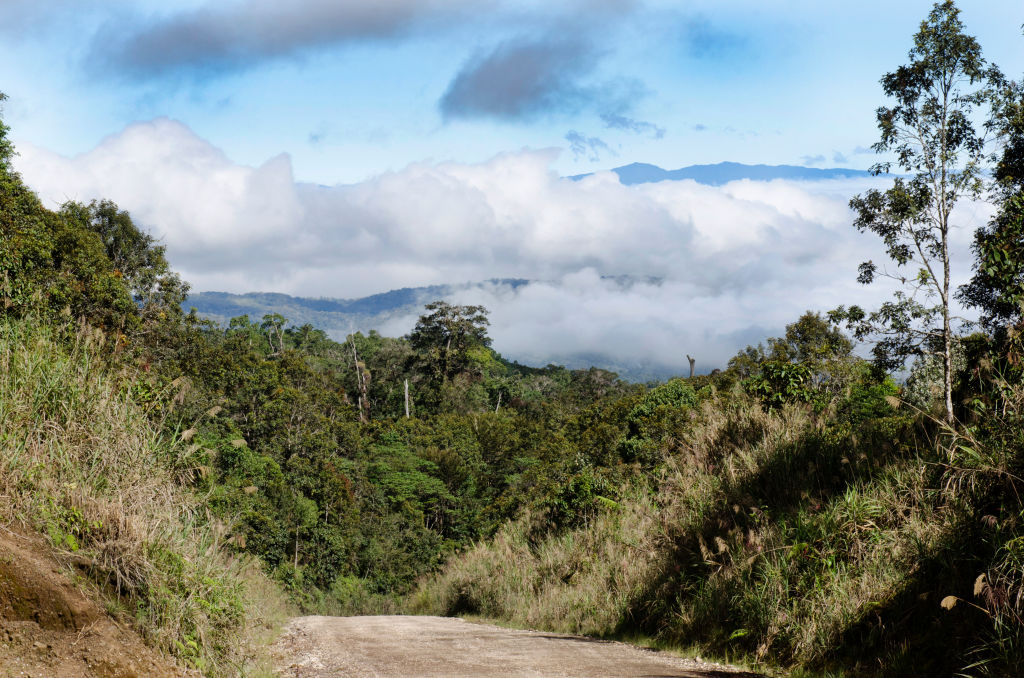
Since I raised serious questions about the transparency, or lack of it, in Asian Development Bank–funded projects in Papua New Guinea, I have been deluged with highly credible information that highlights not just the failure of the ADB when it comes to transparency, but also the record of Australia’s development program, the World Bank and the PNG government itself.
In this update, I deal with just two specific instances of shoddy work and a lack of transparency and accountability when it comes to vital economic infrastructure—roads, bridges, airports and ports.
Ken Fairweather wrote in his memoir, Farewell white man, that the greatest area of corruption and abuse in PNG since independence has been in road construction. As a former member of parliament and government minister, as well as the owner of a major transport business, he is in a better position than most to make that observation.
In 2018–19 Chinese-owned construction companies ‘won’ more than half of the ADB-financed construction projects in PNG, and no less than 78% in monetary value. The largest ADB contract since then, valued at US$54 million, went to China Railway, while at least nine smaller contracts went to companies from a range of countries, including PNG and Australia.
At the moment, at least four companies owned by or linked to the People’s Republic of China are lobbying for up to US$3 billion in road contracts, principally but not totally funded by the ADB.
The question which needs to be asked—and one the Australian government must ask—is how much transparency and supervision of ADB and other countries’ and agencies’ contracts, as well as quality and value for money, is PNG getting for infrastructure projects handed out to Chinese companies?
The road construction example I’ll give isn’t an ADB contract, but one funded by the World Bank with a 30% contribution from Australia’s aid program. It involved upgrading the road from Alotau to East Cape in the Milne Bay Province. The contract worth around K89 million (A$35 million) went to a PRC construction company, China Overseas Engineering Group Co., known as COVEC.
A reputable PNG company, Devcon, was subcontracted to do a small part of the work. COVEC paid local villagers just over K1 per cubic metre for gravel royalties, while the local company paid them around K6 per cubic metre.
The work on this vital piece of infrastructure is not up to the Australian and New Zealand standards which PNG applies to such projects in a range of key areas that are likely to mean pavement failure within two or three years.
Both the ADB and Australia’s Department of Foreign Affairs and Trade need to explain what efforts they made to ensure the road work was of an acceptable standard. Their response will likely be that it was the responsibility of the PNG Department of Works as the ‘implementation agency’. However, that doesn’t seem to be resulting in value-for-money outcomes for PNG or Australian taxpayers, given that the Department of Works reduced a liquidated damages order (for delays and other issues) against COVEC of around K4 million to just K600,000.
This is just one example of shoddy and costly work that will almost certainly mean massive future repairs for the PNG government to fund and undertake.
COVEC is the same company that in 2017 had a K50 million court order against it for illegally extracting road materials from land privately owned by a PNG family for a major project in the Simbu Province. Yet it has continued to win major construction projects across PNG.
The second example is one which I believe has significant and urgent safety implications for our closest neighbour, whose rugged terrain makes air travel not only vital, but potentially hazardous.
The National Airports Corporation has a K1.6 billion program to upgrade 20 regional airports across PNG. Most of the work has—surprise, surprise—gone to PRC construction companies. It involves improving security and safety, repaving tarmacs, and upgrading terminals.
COVEC (again) was awarded the contract for upgrading the Hoskins Airport in West New Britain—and the work was completed in 2014, so there has been plenty of time to assess the quality of it.
The new pavement failed within the first three months. It was dug up and replaced twice, at the expense of the PNG taxpayer, and pavement issues continue to cause costly problems. The terminal building was poorly constructed, and included asbestos imported from China.
A similar story can be seen at other airport work under the program, including Momote on Manus Island and Guria in Oro Province.
The total program is funded 90% by the ADB and 10% by the PNG government.
Again, there are serious questions for the ADB to answer.
The problem with each of these pieces of vital infrastructure is that poor construction quality is going to have massive adverse consequences—and is already doing so.
PNG needs efficient, safe and reliable infrastructure if it is to grow its economy, especially for the vital agricultural sector. On the basis of the numerous reports I have received, the whole area is one riddled with corruption, mismanagement and failure.
That is the last thing PNG, with its economy in dire circumstances, needs.

